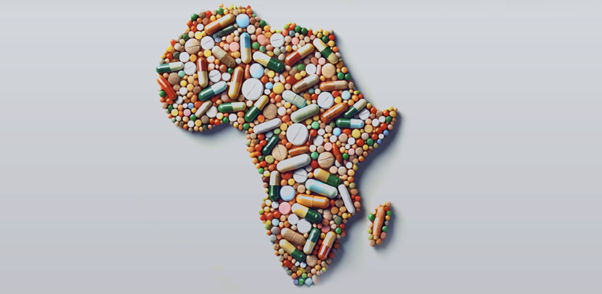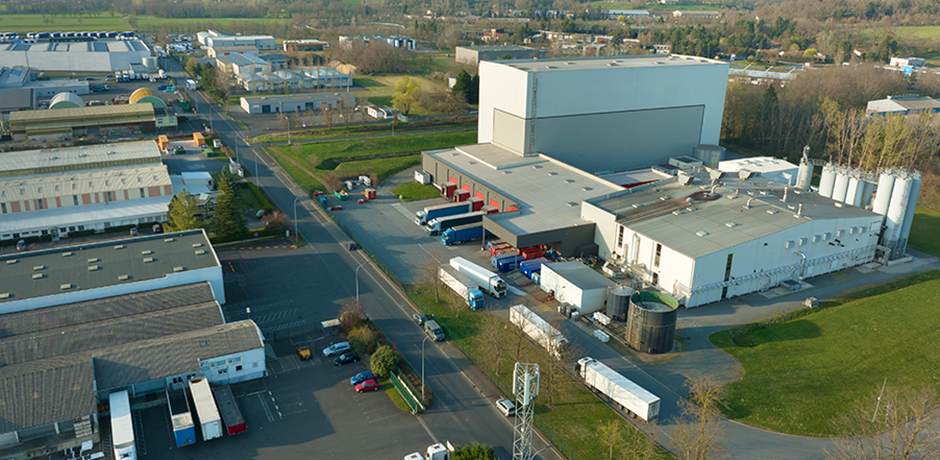Strengthening Pharmaceutical Manufacturing on the African Continent
In partnership with industry and academia from the USA, EU, India, China, and Africa
A. Importance of Manufacturing Health Products in Africa

The COVID-19 pandemic exposed Africa’s vulnerabilities in ensuring access to essential medicines, vaccines, and health technologies. In most sub-Saharan African nations, imports account for 70 to 90 percent of the pharmaceuticals consumed. For vaccines, imports make up over 99 percent of supply.
Given this situation, the African Union’s New Public Health Order aims to safeguard the continent’s health and economic security. The first pillar of this order focuses on expanding the manufacturing of vaccines, diagnostics, and therapeutics within Africa.
To achieve this goal, African nations are prioritizing the development of local production infrastructure and systems — encompassing engineering, financing, regulation, trade, technology, and human resources necessary to establish a sustainable pharmaceutical industry. In response, African pharmaceutical companies are pursuing ambitious projects to meet these emerging needs.
Aligned with the African Union’s vision, Empower’s Academy is collaborating with governments, industry, academia, and the United Nations to accelerate this transformation. Empower has partnered with world-class organizations across the United States, Europe, India, China, and Africa to advance the growth and sustainability of Africa’s pharmaceutical manufacturing sector.
B. Strengthening Africa’s Health Security Through Local Manufacturing Excellence
We are proud to announce a major milestone in Africa’s journey toward self-reliance in pharmaceutical manufacturing.
Presidential Initiative for Unlocking the Healthcare Value Chain (PVAC), a Presidential Initiative of the Federal Republic of Nigeria, has signed a long-term agreement with Empower Swiss, Geneva to begin the establishment of a world-class training facility for manufacturing of pharmaceuticals, biologicals, and diagnostics.
The agreement was formalized in the presence of the Hon. Minister of Health and Social Welfare, H.E. Dr. Muhammad Ali Pate, marking a bold step forward in building skilled human capital for biomanufacturing in Africa.
Dr. Pate described the new initiative, Empower Academy Nigeria, as a giant step forward under President Bola Ahmed Tinubu’s Renewed Hope Agenda.
“I am pleased to inform you that under the leadership of President Bola Ahmed Tinubu, Nigeria has taken a giant step forward in its effort to localise the manufacturing of pharmaceuticals and medical devices in our country for the benefit of our people, our economy, and our region at large,” he said.
Highlighting the significance of the development, the Minister emphasised that the Memorandum of Understanding (MoU) with Empower School of Health, Geneva, would lay the foundation for a skilled workforce to support Nigeria’s growing healthcare manufacturing sector.
According to him, the initiative aims to increase Nigeria’s local manufacturing of pharmaceuticals to at least 70 percent of domestic consumption by 2030, while also boosting vaccine production, establishing multiple new plants for biologicals and diagnostics, and doubling Nigeria’s pharmaceutical market share in Africa to 15 percent.
“The new Empower Academy will deliver cutting-edge curricula, train sector-specific faculty and students, and assist regulatory authorities such as NAFDAC in establishing and training on standard operating procedures that will dynamically strengthen the sector on a sustainable basis,” he said.
For more information, download the brochure:
Download PVAC Brochure.
C. Overview of Empower and Our Services

Empower Group has been collaborating with governments and industries across more than 40 countries for over a decade. Our new Centre for Pharmaceutical Manufacturing and Capacity Building is dedicated to transforming Africa into a hub for high-quality pharmaceutical and medical product manufacturing.
Empower has strengthened its team and forged new partnerships, bringing extensive experience from manufacturing projects across Africa, the Middle East, and Asia. These projects include establishing new facilities, upgrading existing plants, and introducing innovative products approved by US FDA, EMA, and WHO-GMP standards.
The Centre provides comprehensive, full life-cycle project support, covering concept development, feasibility assessment, master planning, architectural design, detailed engineering, risk and hazard management, construction supervision, validation, and commercial start-up.
Additionally, the Centre offers specialized engineering support, including facility design focused on HVAC systems, Building Management Systems (BMS), and the treatment, purification, filtration, and distribution of utility systems. Our team has deep expertise in developing detailed piping and instrumentation diagrams (P&IDs) for both process and utility systems, as well as designing optimized plant layouts that comply with international regulatory standards.
We also provide men/material flow diagrams, civil and structural engineering solutions, and process engineering expertise to ensure optimal equipment selection and efficient facility performance.
D. Centre for Pharmaceutical Manufacturing and Capacity Building Services

Empower’s Academy for Pharmaceutical Manufacturing and Capacity Building offers a comprehensive suite of services designed to strengthen local manufacturing capabilities across the pharmaceutical value chain — from concept to commercialization.
- Consulting
- Feasibility studies, development strategies, and business plans
- Licensing of new products and technology transfer
- Procurement, sourcing, and supply management
- Product optimization and/or new product development
- Portfolio planning and management
- Engineering & Design
- Project management and technical supervision
- Plant upgrades to comply with the latest cGMP guidelines
- Process development and optimization
- Planning, design, and detailed engineering
- Technical support and after-sales services
- Validation & Qualification
- Qualification and Validation Master Plans (QMP, VMP)
- Risk Analysis (RA) and mitigation planning
- GMP audits and regulatory compliance reviews
- Quality control, laboratory setup, and Good Laboratory Practice (GLP) implementation
- Large Turnkey Projects
- Design–Build–Operate–Transfer (DBOT) solutions for end-to-end manufacturing plants
- Scaling up operations from pilot to full-scale manufacturing
- Expansion and modernization of existing production facilities
- Human Resource skilling
- Research and Development (R&D)
- Regulatory Affairs and Quality Assurance (QA)
- Operations and Engineering Management
- Business and Management
- Support Functions: Human Resources, IT/MIS, Finance, Legal, and Communications
E. Investing in Human Capital in Africa

Educating and skilling the pharmaceutical manufacturing workforce — across pharmaceuticals, vaccines, medical devices, and diagnostics — is fundamental to expanding local production capacity in Africa. A critical success factor for the continent’s manufacturing growth is developing a large pool of qualified and skilled professionals.
To achieve this, the manufacturing sector must collaborate with a wide range of stakeholders worldwide:
- Universities, to expand the pool of graduates entering the pharmaceutical and health product manufacturing workforce.
- Technical institutes, to provide hands-on skilling, mentoring, and vocational training.
- Industry partners, supply planning, sourcing (raw materials, excipients, machinery, lab reagents), procurement, production, GMP, equipment and floor operations, safety and environmental management and continuous improvement
- Digital learning organizations, to enhance continuous education and professional development.
Digital learning can play a vital role in bridging the skills gap by providing flexible, self-paced e-learning opportunities that can be supplemented with digital simulation-based training. This approach enables the delivery of cost-effective, standardized, and customized training to a large number of learners across diverse locations. Moreover, reviews of e-learning studies have demonstrated that computer- and web-based learning methods are equally effective as traditional classroom approaches in building both knowledge and practical skills.
The five key areas for skilling and knowledge management that are needed in the workforce include: R&D, Regulatory and Quality Assurance, Operations and Engineering Management, Business Management, and Support Functions.
- R&D: Laboratory operations, clinical trial design, new product development, GMP, and scale-up
- Regulatory and QA: Regulatory compliance, product registration, GMP, GxP audit preparations, post-market surveillance, pharmacovigilance, GLP, and process validation
- Operations & Engineering Management: Supply planning, sourcing (raw materials, excipients, machinery, lab reagents), procurement, production, GMP, equipment and floor operations, safety and environmental management, and continuous improvement
- Business Management: Leadership and management (project management, performance management, portfolio management, market analysis), sales & marketing, and risk management
- Support Functions: Human resources, IT/MIS, finance, legal, and communication
Empower School of Health – Your Manufacturing Solutions Partner
F. Our Team
- Professor Paul Lalvani: Founder and Executive Director, Empower School of Health
- Sakhile Dube-Mwedzi: Coordinator, SADC MRH Programme, Senior Advisor and Faculty, Empower School of Health
- Simon Cole: Senior Advisor - Supply Chain and Pharmaceutical Manufacturing Empower School of Health
- Kaushik Desai: Pharmaceutical Manufacturing Expert, Senior Advisor, Empower School of Health
- Washington Dengu: Senior Consultant, Former WHO Consultant Manufacturing and Regulatory Expert Empower School of Health
Download Brochure

